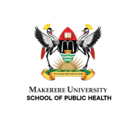The programme is run on a multidisciplinary basis, using specialists from within and outside of the University. Makerere University School of Public Health (MakSPH) has over 50 established staff and more than 50 Research Fellows and Research Associates, who participate in teaching of academic courses. It also utilises other experts in the relevant fields from the other Schools in the College of Health Sciences, such as the School of Medicine, School of Biomedical Sciences and School of Health Sciences. Other collaborating universities will be invited in the implementation of the programme. Suitable training sites and supervisors including from UN agencies, NGOs and community-based organisations (CBOs) supervise and guide the students during their field attachments.

